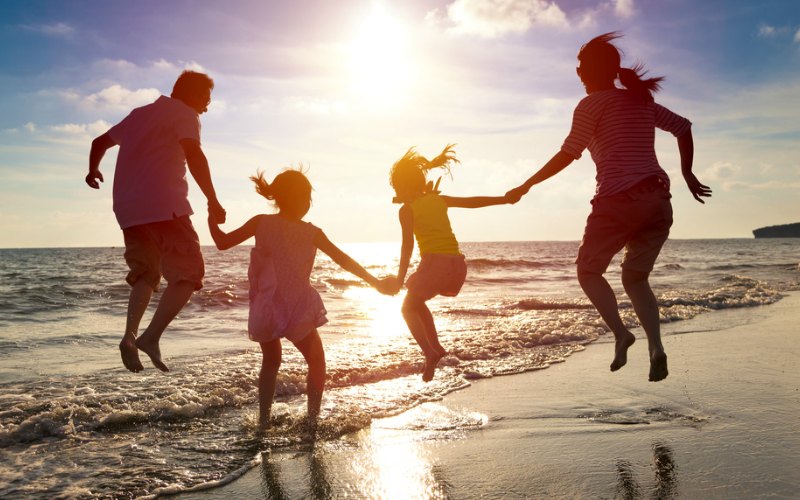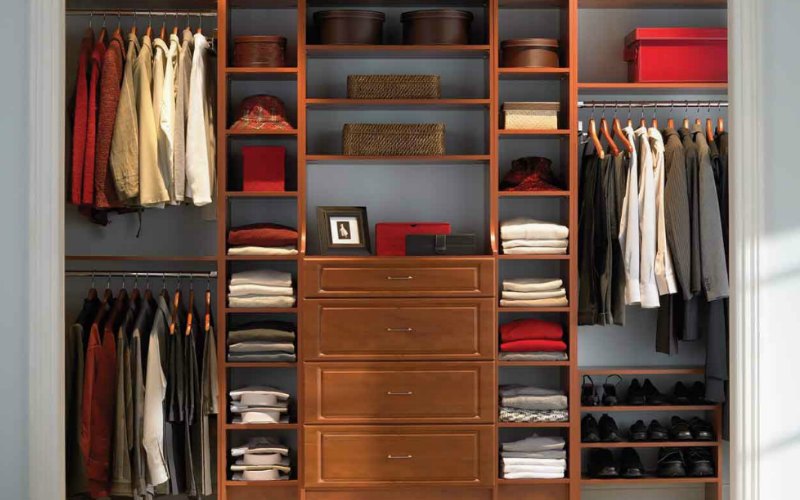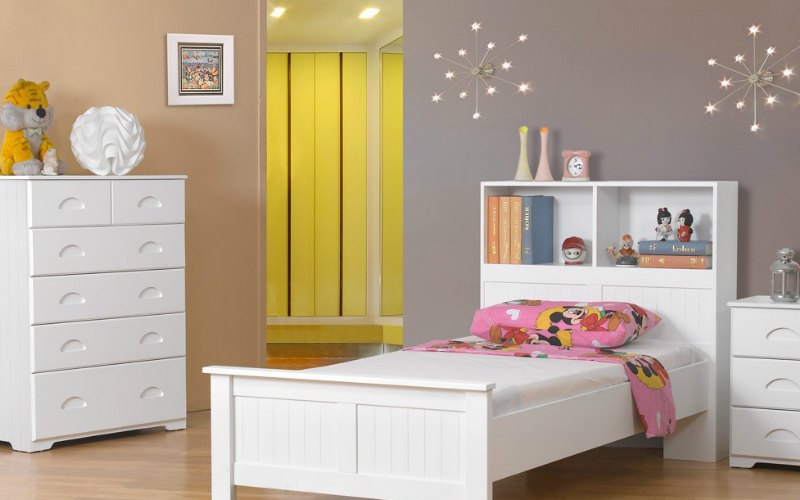
Minimalism and Parenting — An Introduction
Minimalism isn’t only about possessions: Yes. You can improve your home through less furniture. Improve your wardrobe when it’s pared to the essentials. But minimalism is also a way of doing things.
Nothing is more personal or vital than the way we raise our kids. This guide will show you how minimalism can apply to parenting, with a brief overview of what that looks like with different ages of kids. See how the principles of minimalism can bring the focus and clarity to parenting as it brings to your home.
Information overload
If you are a parent, you know that the advice out there is endless. It comes from every direction: friends, relatives, books for sale, classes to take, forums, blogs on the Internet (yes, like this one). Some of the information makes sense intuitively, some of it makes you fear for the future of your child when you don’t teach him classical music theory in the womb.
The worst part is, one recommended parenting style fully contradicts another popular style. If one parenting expert says, “Dress your child in red” and another says, “Never dress your child in red,” you can get to the point of feeling paralyzed. The only thing they all seem to agree on is: you must do something. Many things. You must constantly interact with, stimulate, guide, and occupy your child. Or else…
Or else what?
Minimalist parenting says you don’t have to do anything special. And your kid will turn out just fine. In fact, better than just fine. She’ll turn out confident, capable and happy. And you’ll feel the same way too.
It starts, just like clearing out the clutter in your house, by recognizing what’s important. Distilling down to what kids need. And what is that?
- Shelter
- Nourishment
- Your attention
- Activity
- Rest
Shelter
A place to live. Clothes to wear. We get into the “stuff” kids need in another post. Spoiler alert: it isn’t a lot.
Nourishment
Feeding a family is not easy. It gets even harder when you feel pressure to conform to new nutrition fads or diets, obsessing over foods to avoid and foods to include. A minimalist view of the new diets is to look at the broader picture. Most of these diets make people feel better because they avoid processed foods. So, then. Avoid processed foods.
Just focus on healthy foods that satisfy. Stay as close as you can to homemade. Learn a few key recipes that everyone likes as your staples and rotate in a few new things here and there. Keep simple, fresh snacks on hand. That’s all you need to accomplish the task at hand—feeding your family.
Your attention
While nobody can devote full attention to their child at all times, it’s amazing how satisfying it is to genuinely observe the natural inclinations of kids. Being present, ready to interact when the need arises, allowing your child to lead and initiate activity is far more effective than constantly supervising, endlessly suggesting, and monitoring her and her play.
Consider yourself the center, to which your kid can return when he needs you. After ensuring his safety, let your child do the things that interest him. Part of minimalist parenting is trusting that your child (for the most part) knows what he needs to learn and how he needs to play.
Activity
Kids need to move. They need to stretch their growing bodies and interact with the world around them. Sometimes activity gets over-scheduled. We think that in order for our kid to thrive she must be involved in every available sport and learn every possible musical instrument. She must constantly be learning complex equations and participating in theater. This is just the modern theme of over-consumption that minimalism tries to avoid.
Instead of doing everything, just let your kid do something. Talk to him and see which activities genuinely interest him. After participating in a structured activity or two, try to leave much of the time unscheduled for whatever activity arises. This could be taking a walk together. This could be going to the park. This could be as simple as playing in the backyard. By not scheduling every possible moment and participating in every possible extracurricular activity, we open up the possibility to simply exist with our kids in their natural state and in their natural habitat
Rest
Often when kids misbehave they are either tired or hungry. It’s important to allow times of the day not just for sleep but for doing very little. Reading a book even playing video games (occasionally) can be considered down time and is necessary.
Like adults, children need a place in the home to sleep that is free of distractions. LIke you, they should put away all electronic devices before bed so they can really focus on resting their bodies.
Ages and stages
Here’s a few examples of what minimalist parenting might look like throughout the stages.
Babies
A play gym. A mobile. A white noise machine. A bouncy seat. A set of flashcards with contrasting colors. A bear that sings. A rabbit that jiggles. A rattle.
You could (easily and quickly) go broke buying all the toys that your baby “needs.” But all she really needs is a safe place to develop her growing skills under the observant eye of her parents.
Parents want to feel involved with their baby. So we shake keys in his face, rattle rattles, show him different toys and the different things those toys do. It feels like interacting, but that’s on our terms.
Minimalism says sitting calmly as your baby lies on the floor, being fully focused on your baby, watching what she watches, enjoying what she enjoys is enough. There’s no need to perform a jangly sideshow, the world is so new to your baby that just watching the ceiling will often be enough.
Toddlers
Instead of constantly trying to teach our little one, we can simply allow him the space to learn. Strike the balance between keeping him safe and letting him explore the world around him. This isn’t the time for flashcards or other learning games. All of that will come.
Make your home a calm and safe refuge from a loud and energetic world. Taking toddlers to fairs and festivals, to far off sights, seems enriching, but at this stage, the simplicity of a ball or a bowl of soapy water can be equally as fascinating to them. The point is to not worry about crowding your toddler’s days with experiences and forced learning. The point is to be present, to offer simple entertainment and child-directed play. It’s the time you spend that helps him learn, not the activities you do.
Grade school
School is a lot for kids. The social aspects, the learning, sitting still, the structure. Often parents will feel the need to structure the time spent outside of school as well. Stuffing more things and official activities into already full days. And we wonder why we are met with resistance.
Minimalism suggests that, like a room in our home, the days of a grade school child should be pared down to the essentials (he must go to school, he must eat, he must be active and he must rest). Activity can take the form of an after school sport or it can be an afternoon bike ride. Resting can be as simple as lying on the floor with mom or dad and talking about the day.
Outside of school, keeping a grade schooler’s day relatively unstructured lets him develop who he really is, instead of always conforming to prescribed activities. Resisting the urge to do too much, to sign up for too many programs, trips and clubs might be hard, but it’s a wonderful way to let your kid develop on his own. As long as you are giving your attention, providing an anchor for him to return to, your child will naturally learn, explore and become part of the world around him.
Middle schoolers and beyond
After all the exploring and development that a younger child goes through, by this stage she is solidifying the person she will be. Minimalism applies to your older child in much the same way as when she was younger. Not over filling days with activities, not signing up for every club and program that comes along. Of remembering to spend time together doing not much of anything.
The difference at this stage is the amount of autonomy your child has. He has more of a say in what he wants and how he wants to spend his time. And while there’s no way to force minimalism on anyone, there is always the opportunity for you to ask questions of your child, asking him to try to look at all the different diversions out there and figure out how many he really wants to undertake.
This is another instance where giving your full attention lets your child develop and make choices while you observe and offer yourself as an anchor and sounding board.
Minimalist parenting means enjoying your family
Minimalist parenting is about getting rid of all the things you think you “have” to do. It’s about taking on only those activities that seem right and that your child actually wants to take on. It’s about getting rid of some of the noise around parenting and instead taking more time to observe. It’s about not constantly “doing something” for the sake of doing something. It’s about paying attention, spending time and letting the drive for constant busyness slip away, so you can enjoy your family.















